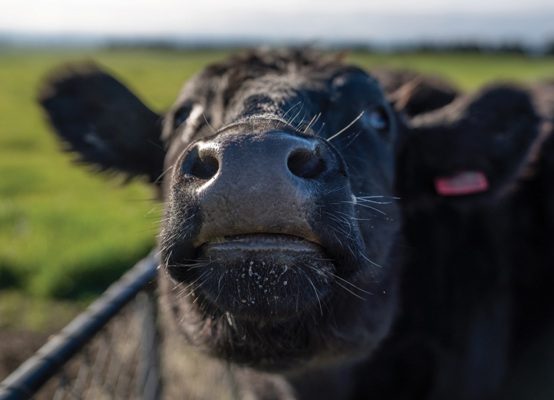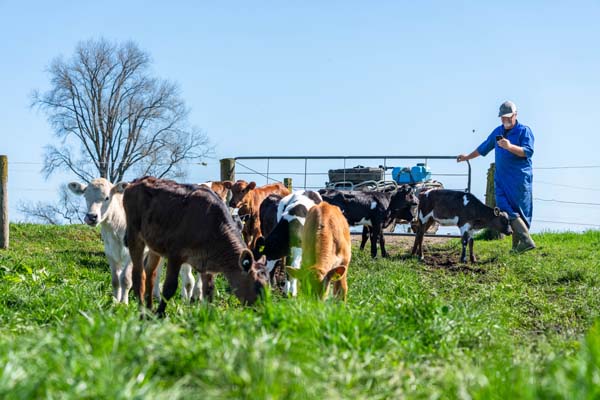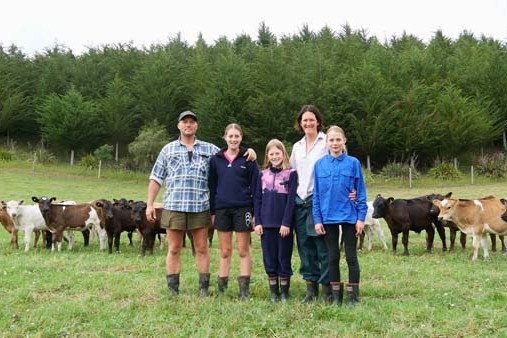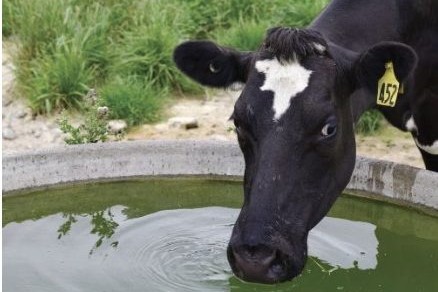Red meat disruptors

Anne Lee
Co-operatives have been in the spotlight for all the wrong reasons lately but 16 years on First Light Foods is showing that with the right strategy and vision, innovation and a whole heap of perseverance its model can be a success.
First Light is the only producer and marketer of wholly grass-fed, Wagyu beef in the world and has successfully shown the naysayers it’s possible to disrupt the traditional red meat value chain and give producers the lion’s share of returns from a premium product.
In 2011 the First Light Wagyu Producers Group was formed, half owned by Wagyu producers with the other half owned by the value chain management team.
First Light’s three founders Gerard Hickey, Jason Ross and Greg Evans had a vision to create the world’s best meat cuts and take them to the world in a more direct end-to-end marketing pipeline.
‘Bobby calves are paying about $30 today but at First Light we’re paying dairy farmers up to $200 for a 10-day-old calf or $565 for 90kg weaner with some dairy farmers farming the cattle through to finish on their run-offs – and these are from crossbred kiwi cross cows with Wagyu over them.’
Gerard told this year’s New Zealand Institute of Primary Industry Management conference that from the outset they’ve had to disprove numerous myths and were given endless reasons why what they were attempting couldn’t be done.
One of the initial myths was that crossbred dairy beef calves had no value.
“Bobby calves are paying about $30 today but at First Light we’re paying dairy farmers up to $200 for a 10-day-old calf or $565 for 90kg weaner with some dairy farmers farming the cattle through to finish on their run-offs – and these are from crossbred kiwi cross cows with Wagyu over them,” Gerard said.
They were told rearing Wagyu calves was difficult and farmers wouldn’t do it but their data shows otherwise.
They have farmers rearing up to 2500 calves with an average liveweight gain of 0.8kg/day and very low losses.
They were also told that Wagyu cattle couldn’t be grown on grass because everywhere else in the world they were grain fed.
But they’ve learned that provided the calves are fed well for the first 4 months of life during weaning that the cattle will ultimately marble and marbling equals meat quality.”
They were told E-Commerce couldn’t work from NZ but they successfully launched the First Light Steak Club late last year sending meat cuts direct to customers’ homes in the United States.
The First Light Steak Club already has over 100 members and a revenue of US $400,000 with an expectation for 2000 members by the end of year three and a revenue of US$4m.
Product is sent by sea freight to the US and then packed and sent to individual member’s doors.
“It’s a model we intend to perfect in the US and then take global.”
To combat the myth that beef for burgers has to be a low return market, First Light has aligned with the premium HiHo Cheeseburger restaurant business in the US exclusively supplying it with its Wagyu beef.
The Wagyu burgers are award winning and diners get a glimpse of NZ in each restaurant with an entire wall dedicated to a Wagyu farm scene.
Good news for grassfed beef eaters is that health studies show that the ratio of Omega 6 (not so good fats) to Omega 3 (good fats) is what’s important and the grassfed product has a ratio of less than 2:1 compared with 40:1 for grain fed.
This year First Light will process more than 11,000 cattle and have 22,000 calves on the ground. Next year those numbers will grow to 14,200 cattle processed and 25,000 calves and the business will ultimately reach a status quo level of 30,000 cattle per annum. Gerard said initially they were told they’d never return enough to get New Zealand farmers interested in rearing and finishing the animals but the returns per kilogram are attractive at $7/kg for MBS 3-5 and $8/kg for MBS 6-7.
MBS of 8-9 earn $9/kg.
Gerard says the premium meat is marketed as grass fed, GMO-free and antibiotic-free.
At the start people told them they’d never be able to have regular volumes of antibiotic free product but today greater than 90% of product is certified as antibiotic free.
The company is half owned by farmers who appoint farmer directors to the board.
Gerard said the near-term goal is a $100m revenue business. The company is targeting $7.25/kg on a year round consistent basis on a MBS of 4 for the 30,000 animals.




